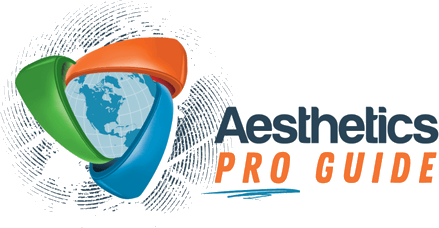
Securing sensitive information is vital when dealing with personal health data, especially in the medical aesthetic industry. Medspas, which combine medical treatments with a relaxing spa environment, handle a significant amount of sensitive client information. Particularly with the use of Electronic Medical Records (EMRs) in medical spa software, having strong login credential security is critical. Ensuring that this data remains secure is not just a best practice–it's a legal requirement. Here, we explore the importance of login credential security for medical spas and the potential consequences of inadequate protection.
Login credentials are the combination of a username and password used to authenticate a user's identity and grant access to a computer system, application, or network. These credentials act as a digital key, ensuring that only authorized individuals can access sensitive information and perform specific actions within the system.

Medical spas collect and store a variety of personal and health-related information from their clients. This data includes everything from medical histories and treatment plans to billing information. Unauthorized access to this information can lead to identity theft, financial fraud, and other forms of exploitation. By securing login credentials, medical spas can significantly reduce the risk of data breaches and ensure that sensitive information remains confidential.
The Health Insurance Portability and Accountability Act (HIPAA) mandates strict guidelines for the protection of client information. Failure to comply with these regulations can result in severe financial penalties and damage to a business's reputation. According to the HIPAA Journal, in 2023, fines for HIPAA violations ranged from $100 to $50,000 per violation, with an annual maximum of $1.5 million for repeated violations. These penalties underscore the importance of robust security measures, including secure login credentials.
The federal government regularly updates the civil monetary penalties for HIPAA violations to account for inflation. As of October 2023, these adjustments have led to even higher potential fines. For medspas, this means that the financial stakes are continually increasing, making it more critical than ever to invest in comprehensive security solutions.
In this case, sharing is not caring. Sharing usernames and passwords significantly compromises login security by increasing the risk of unauthorized access and data breaches. It undermines individual accountability, making it difficult to track user activities and identify responsible parties.
One of the simplest yet most effective ways to enhance login credential security is by implementing strong password policies. Encourage the use of complex passwords that include a mix of letters, numbers, and special characters. Additionally, regular password updates can prevent unauthorized access. Cybersecurity experts recommend changing your passwords at least once every three months or immediately if any potential security threat is detected.
Two-Factor Authentication (2FA) adds extra security by requiring users to verify their identity through multiple means. This could include something they know (a password), something they have (a smartphone), or something they are (fingerprint or facial recognition). 2FA significantly reduces the risk of unauthorized access, even if login credentials are compromised. Having med spa management software with 2FA is key to keeping data secure.
Continuous monitoring and regular audits of access logs can help identify suspicious activity early. By keeping an eye on who is accessing sensitive information and when, medical spas can quickly respond to potential security threats.
Training staff on the importance of login credential security and best practices can go a long way in preventing breaches. Ensure that all employees understand the importance of securing their login information and recognize common phishing attempts and other tactics used by cybercriminals.
Securing login credentials is not just about protecting sensitive information–it's about maintaining the trust of your clients and complying with legal standards. By implementing strong password policies, using multi-factor authentication, regularly monitoring access, and educating staff, medical spas can significantly reduce the risk of data breaches. As the penalties for HIPAA violations continue to rise, investing in robust security measures and secure spa management software is not only a prudent business decision but also a legal imperative.
For more information on HIPAA violation fines, visit HIPAA Journal, and for details on the annual civil monetary penalties inflation adjustment, check out the Federal Register.
Running a small spa or solo practice means wearing every hat–owner, receptionist, marketer, and service provider–often all in the same day. Between...
In today's competitive aesthetics landscape, med spas are no longer relying solely on one-time services to drive revenue. Clients increasingly expect...
Staring at next week's schedule and seeing too many empty slots? You're not alone. The struggle to consistently generate new leads isn't about your skills...
In today's fast-paced aesthetics industry, medical spa owners face increasing pressure to modernize their workflows, stay compliant, and deliver seamless client...
If you've ever searched for software to run your spa or aesthetic practice, you've probably seen terms like...
The medical spa industry continues to evolve at lightning speed, driven by consumer demand for non-invasive treatments, a surge in wellness-focused...


AestheticsPro - Bringing you 15 years of industry experience and
resources to guide your practice to success."